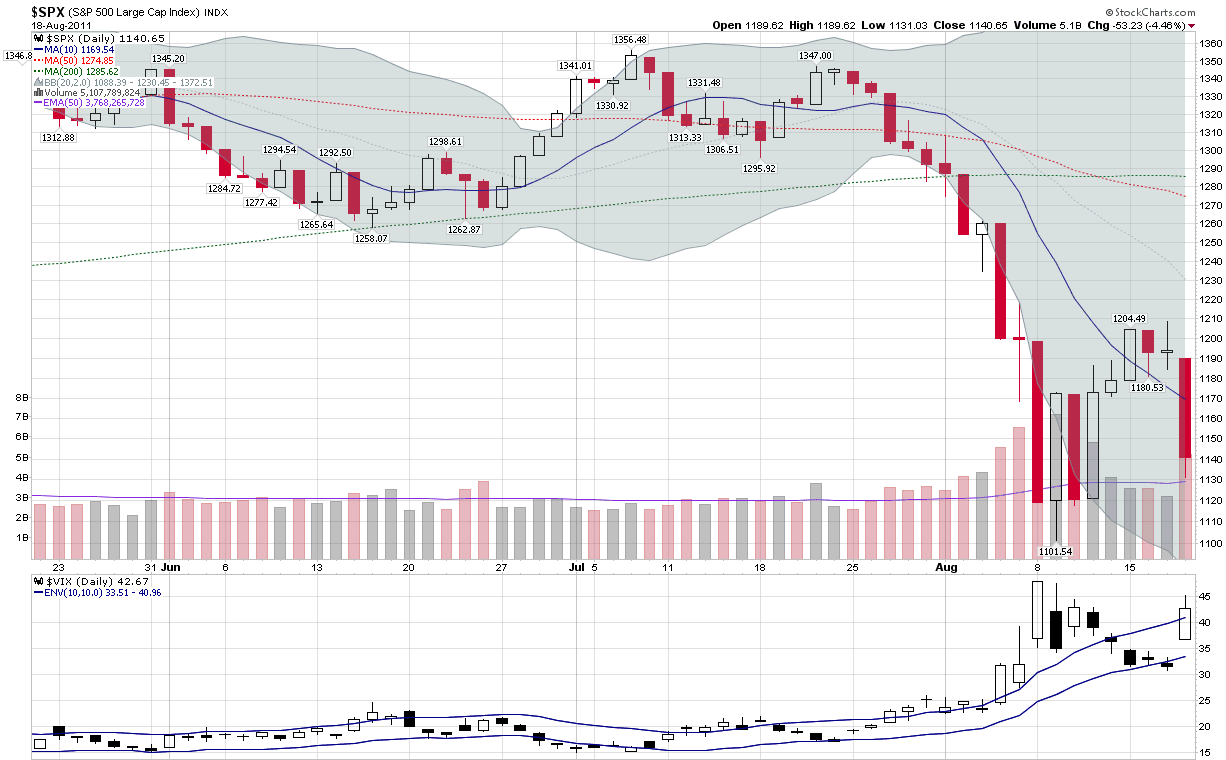Echo Volatility and Another VIX Double Top
Back in 2007, I wrote extensively about the phenomenon I dubbed echo volatility, in which large VIX spikes are frequently accompanied by a second spike of similar size in the month or so following the initial spike. Following the twin VIX spikes over 80 in 2008, I reprised this them in a post I titled The Significance of Double Tops in the VIX.
Lo and behold, here we are in another volatility storm and we have what looks like it was a VIX top of 48.00 on August 8th followed by a spike to 45.28 today – a nine day span between VIX spikes.
Of prior instances of VIX double tops, certainly the most dramatic comes from 2008, when the VIX hit an all-time high of 89.53, pulled back more than 45 points, then spiked all the way back up to 81.48 some 20 trading days later. The timing of these VIX spikes was eerily reminiscent of the 1998 Long-Term Capital Management fiasco, when the VIX hit 48.06 on September 11th, then exactly 20 days later hit a crisis high of 49.53.
In addition to those 20-day periods between VIX spikes, there is also precedent for a 9-day twin top going back to 2002, coinciding with the WorldCom bankruptcy filing. Here we saw a top of 48.46 on July 24th and a secondary spike to 45.21 nine days later.
In sum, of the top seven highest VIX spikes recorded to date, four of these have seen two separate spikes in which the VIX exceeded 45, with those spikes falling from 9 to 20 days apart.
Clearly there are fundamental factors that can trigger another VIX spike above the 45 level before the current volatility storm has passed, but if history is any guide, two is likely to be the lucky number.
Related posts:
- The Significance of Double Tops in the VIX
- VIX Sets Some New Records, Suggesting Volatility Near Peak
- VIX Spikes and Echo Volatility
- When Is Echo Volatility Safely Behind Us?
- On Short-Term VIX Mean Reversion and Echo Volatility
- Echo Volatility, Day 10
- VIX Approaches Pre-2008 Record Highs
- Forces Acting on the VIX
- What My Dog Can Tell Us About Volatilty

[graphic: StockCharts.com]

